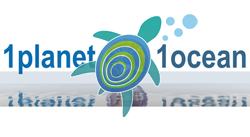1planet1ocean is out. Ocean Doctor is in.
1planet1ocean is out. Ocean Doctor is in. The reason? When my daughter came up with, “Ocean Doctor,” it was clever, catchy and immediately caught on as my moniker and even as the name of my radio show. 1planet1ocean – a project of The Ocean Foundation, served us well since 2004, but in a frenzy of New Year cleansing and simplifying, I felt it best to let go of the old and embrace the new.
My work doesn’t change a bit. I’m still a senior fellow of The Ocean Foundation. But over the coming weeks, look for 1planet1ocean to gracefully fade away, my email address to change, my business cards to have more white space, and my already-too-long introductions to become shorter.
The most visible change is here on the web. Already, 1planet1ocean.org has been shut down. However, all of its content lives on here in the shiny new and improved OceanDoctor.org site. In fact, this has been an opportunity to bring our web presence to a new level, so here are some of the improvements you’ll find:
- No need to check two web sites. You can find everything here. Fewer clicks, happier fingers.
- Better, stronger, faster. OceanDoctor.org now lives on a more powerful, more reliable server. You should find it snappier and no longer encounter server errors.
- Easier to find things. New menus, new structure, more ways to find the content you’re looking for. You can search by project, location, etc.
- Prettier! It’s cleaner, sleeker, prettier. Hopefully your right brain will be pleased.
- Curated Ocean Newswire: In the sidebar you’ll now find a scrolling list of carefully-curated ocean news headlines from leading news agencies and governmental news sources.
- Events: You’ll now find a list of upcoming events on the sidebar and a browseable calendar of upcoming events with iCal and Google maps.
- Expedition Tracker: Look for improvements in our real-time expedition tracking.
- Facebook integration: It’s now much easier to leave comments. Just make sure you’re logged in to your Facebook account, scroll down to the comments section, enter your comment, press “post” and you’re done. Try it.
- Ocean Doctor’s Reflections: OceanDoctor.org began as my personal blog and I have every intention of keeping my first-person, bloggy voice strong, so you’ll now find these posts filed under “Ocean Doctor’s Reflections.”
- Less maintenance, more content: Having one site to maintain instead of two is a productivity dream. But it’s even better thanks to new under-the-hood tools that make a geek squeal. Bottom line is that we’ll be spending more time writing quality content and less time cranking out PHP/HTML code.
I hope you like the changes. As always, your feedback is welcome. Parting with 1planet1ocean is bittersweet — I still like the name and embrace what it represents. Who knows? Perhaps we’ll take it off the shelf again someday. Meanwhile, I leave you with the words I used to introduce 1planet1ocean and look forward to continuing our work together as your friendly, neighborhood Ocean Doctor.
The ocean once stood as a forbidding, impenetrable divide that held civilizations apart for centuries. With the advent of paddle, sail, then steam, the seas began to unite the world through exploration and trade. Today, we understand that the ocean doesn’t divide us — it unites us. Ocean currents forge critical ecological linkages across vast ocean stretches. International collaboration is essential to protect the waters that we share. The 21st century has opened with an unprecedented opportunity to make this the century of the ocean.
The name 1planet1ocean signifies the fact that the oceans no longer divide us, but indeed unite us, and a united effort — involving strong international collaboration — is needed to develop solutions that restore and sustain the world’s oceans. The name 1planet1ocean was inspired by the phrase “Un planeta, un oceano” (One planet, one ocean) written on the back of the official conference T-shirt of the 2003 MarCuba conference in Havana, Cuba, a reference to the 2002 report by the United Nations Educational, Scientific and Cultural Organization (UNESCO) entitled, One Planet, One Ocean – Sustainable Development of Oceans and Coasts: a Commitment of 129 States at Johannesburg 2002.



Smart change.
NASA should be exploring our ocean, not space, to explore the possibilities of what effect drilling in the Gulf has on the earths mantle. Drilling 5 miles into a 15 mile mantle sounds risky. Emitting fossil fuels, creating cavities in the mantle and emitting greenhouse gasses, ” the oceans are descending upon us”
An earthquake in Haiti was unheard of, and earthquakes are more frequent. Something to consider,